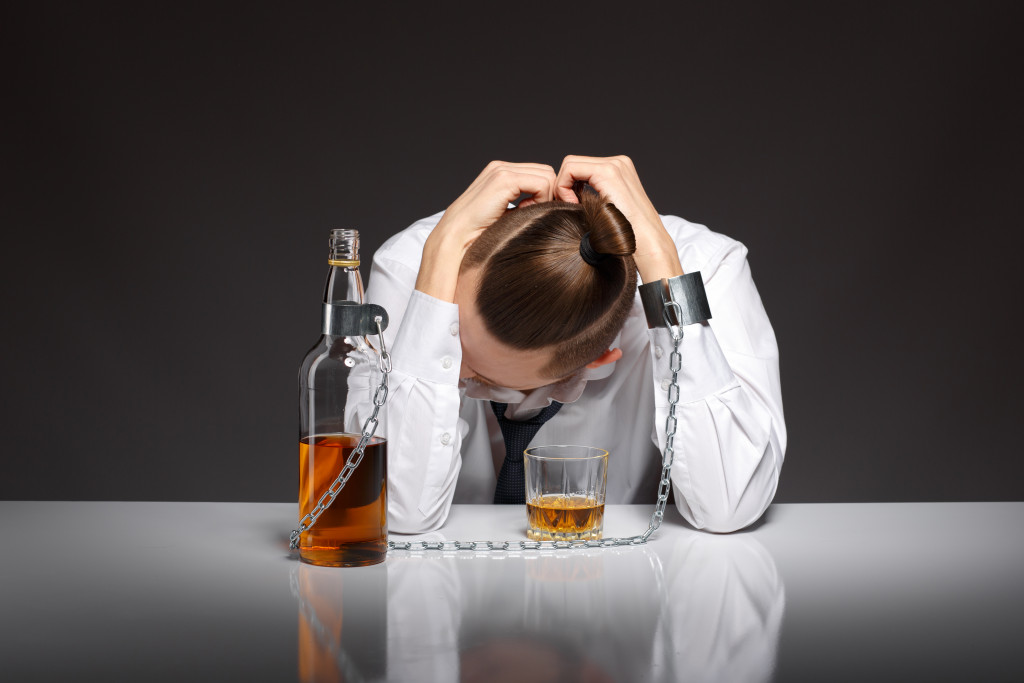It is no secret that smoking and drinking are harmful to one’s health. However, what is less well-known is that these activities can also lead to dependence and many related problems. This article will explore the nature, causes, and effects of smoking and drinking dependence and prevention and treatment methods.
Smoking and Drinking Dependence
Dependence is when a person becomes physically and psychologically hooked on smoking or drinking. That means that they need to smoke or drink liquor to feel normal. If they try to quit, they may experience symptoms of withdrawal.
Withdrawal symptoms of smoking include:
- anxiety
- irritability
- insomnia
- headaches
- dizziness
- increased appetite
- cravings for cigarettes
Withdrawal symptoms of drinking include:
- anxiety
- shakiness
- sweating
- nausea and vomiting
- headache
- insomnia
These symptoms can be intense and may make it difficult for a person to quit smoking or drinking independently.
Causes of Smoking and Drinking Dependence
There is no single cause of smoking or drinking dependence. Instead, it is thought to be the result of a combination of genetic, psychological, and environmental factors.
Some people may be more likely to develop dependence because of their genes. For example, research has shown that people with specific variants of the DRD2 gene are more likely to become dependent on liquor. Studies have also shown that people who have family members dependent on drinking or illegal substances are more likely to become dependent themselves.
People who have mental health disorders such as anxiety or depression may also be more likely to develop smoking or drinking dependence. This is because they may start to use cigarettes or liquor as a way to cope and then to self-medicate their symptoms. Others may turn to these substances as a way to escape from problems in their life.
Finally, people who live in environments where smoking and drinking are normalized or accepted are also more likely to develop dependence. This is especially true if they see people close to them engaging in these activities.

Effects of Smoking and Drinking Dependence
Smoking and drinking dependence can lead to a number of serious problems. Both are associated with an increased risk of developing cancer. They can also damage the lungs and liver, and lead to other health problems such as heart disease, stroke, and high blood pressure.
People who are dependent on cigarettes or liquor are also more likely to suffer from mental health disorders such as anxiety and depression.
In addition, smoking and drinking dependence can interfere with a person’s ability to perform well at work or school. They may have difficulty concentrating or attending to tasks, and their performance may suffer as a result.
Furthermore, financial problems are common among people with smoking or drinking dependence. This is because these substances can be expensive, and people may end up spending a lot of money on them.
Finally, smoking and drinking dependence can lead to problems in relationships. People who are dependent on these substances may fight with their partners or family members, and they may have difficulty maintaining healthy relationships.
Prevention of Smoking and Drinking Dependence
There are a number of things you can do to prevent smoking and drinking dependence from developing. It is important to create an environment in which these substances are not normalized or accepted. This can be done by:
- teaching children about the risks of smoking and drinking
- restricting access to cigarettes and liquor
- increasing taxes on tobacco and liquor products
- banning smoking in public places
If you choose to drink, do so in moderation. It is also important to avoid places where people are smoking or using illegal substances.
If you have family members who are dependent on these substances, be aware of the risks and take steps to protect yourself.
Treatment of Smoking and Drinking Dependence
If you think you may be dependent on cigarettes or liquor, it is important to seek help. There are a number of treatments and programs available that can help you overcome your dependence and live a smoke-free or liquor-free life.
These services provide smoking or drinking withdrawal and detox management. They recognize the severity of withdrawal symptoms during detoxification. Hence, they provide full support.
Part of the treatment is counseling to help you identify the underlying causes of your dependence and find ways to cope with triggers. Treatment can also include medication to help reduce cravings and withdrawal symptoms.
Smoking and drinking dependence are serious problems, but you can overcome them with the right help. If you or someone you know is struggling with these substances, don’t hesitate to reach out for assistance.

